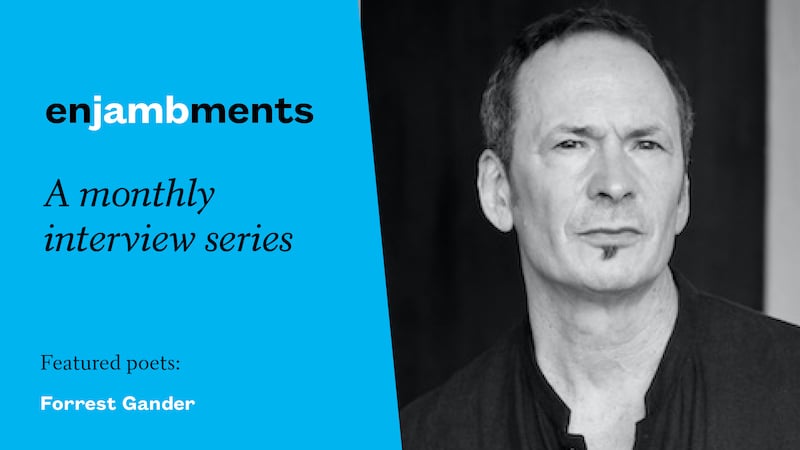
Forrest Gander is a poet and translator and the author of numerous collections, most recently Mojave Ghost (New Directions, 2024). With Michael Wiegers, he is the coeditor of The Essential C. D. Wright (Copper Canyon Press, 2025). A former Chancellor of the Academy of American Poets, Gander was the Briggs-Copeland poet at Harvard University and is currently the Adele Kellenberg Seaver Professor Emeritus of Literary Arts and Comparative Literature at Brown University.
Poets.org: How did you and Michael Wiegers decide on which poems to showcase in The Essential C. D. Wright?
Forrest Gander: We knocked our heads together. We knew we didn’t want to duplicate her Selected, so we each made a more intimate list, leaning into the poems that have most moved us, respectively. Then we compared and talked about our choices. We included more recent, unpublished poems. And we added some of her translations—both from Spanish and from French (C. D. was a French major)—that few people have ever seen.
Poets.org: What did you learn about this poet that you didn’t know before compiling this collection?
FG: I already knew, since I lived with her for thirty-five years, how uncommonly brilliant she was. How she could mix humor with scorching rage, sensuality with dogged ethical conviction. How she refused to repeat herself, how she restlessly explored new formal and tonal possibilities for her poems. But although her range is incredible, her themes—love’s tenderness, the insistent focus on justice, an enthusiasm for the magic of the word—are constant from the start to the end of her long body of work.
Poets.org: What did you learn from curating this volume that you would like to share with someone trying to publish their first collection?
FG: It would be unpopular, but I think I’d say—to my earlier self; to my present self; to a friend—WAIT! No one needs another okay or pretty good collection of poems. Although we may feel the urge to publish as soon as possible, if we wait past that compulsive urge, curating our book until we’re sure it’s as idiosyncratic and inimitable as any book by C. D. Wright—that’s the way to do it. And for our work to last.
Poets.org: What was your “gateway” into the craft of poetry—the poem or poetry collection that made you fall in love with this literary form?
FG: My mother’s voice was the gateway. When I was a child, she would read me poems by Edgar Allen Poe—that hypnotic rhythm—and Carl Sandburg. Her father, my grandfather, would walk around the apartment reciting old poems in English and Swedish. Just listening to him, I memorized the monologue “Spartacus to the Gladiators at Capua,” a (sort of) prose poem by Elijah Kellogg, collected by poet Epes Sargent in The Primary Standard Speaker, published in 1857. Soon I was in love with Dylan Thomas and Gerard Manley Hopkins. But when I was seventeen, I got hold of The New Naked Poetry, an anthology edited by Stephen Berg and Robert Mezey that included work by the Black Mountain poets, the Beats, and the New York School. George Oppen, Robert Creeley, Denise Levertov, Adrienne Rich, and James Wright. Bong! My life ratcheted back and restarted.
Poets.org: If you could pair one of the poems in The Essential C. D. Wright with a work of art, song, recipe, or some other form of media, which poem would you choose, and with what would you pair it?
FG: In a sense, C. D. already made the choice for me. Long back, in her brutal, cinematographic poem “Treatment,” C. D. imagines into being Pharoah Sanders as an otherworldly figure of pain-absorbing justice. Righteousness. She doesn’t specify what particular composition he’s playing, but I think it would be “Harvest Time” from the album Pharoah.
Poets.org: What are you currently reading?
FG: I’m reading a riveting, trippy book, Latitud, by the Mexican poet Ricardo Cázares, one of my favorite contemporary Mexican poets—his work very much in conversation with U.S. poetry. Also right here in front of me, Dong Li’s The Orange Tree. And Robert Hass’s new translation, with David Frick, of Poet in the World, Czesław Miłosz’s poems written between 1946 and 1953.
Poets.org: What are your favorite poems on Poets.org?
I’m moved to find C. D.’s “Imaginary México,” which transports me to the time when we lived in Dolores Hidalgo, and the excerpts from C. D.’s One with Others. But favorite poems shift around. I most often go to Poets.org to find poems that surface—but only partially—in my mind. I love “My Friend Tree” by Lorine Niedecker. I keep returning to re-memorize “Psalm” by George Oppen. I look up poems by more living poets than dead poets, but making a list of them would be unwieldy.
